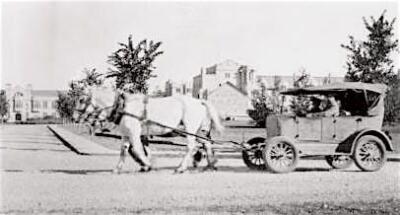1780 Move over Dickens
Knight of the Rails
by Christine Welldon
Toronto: Red Deer Press, 2022
$14.95 / 9780889956698
Reviewed by Ron Verzuh
*
 Move Over Dickens: Meet a Canadian Pip and An Unusual Artful Dodger
Move Over Dickens: Meet a Canadian Pip and An Unusual Artful Dodger
Novels for teenagers rarely cross my desk these days. In my youth I revelled in the adventures of the Hardy Boys until Mom took the flashlight away. They were among my early heroes. Now, thanks to Christine Welldon, I can add Canadian Billy Knight.
British author J.K. Rowling’s Harry Potter series thrilled millions of young readers and forced a demand for more sophisticated stories for young people. Welldon has delivered a story that shows she understands that young readers require more detail and credibility now. Also, as she notes in an interview at the back of the book, she has borrowed from Charles Dickens’s Oliver Twist, an old favourite of mine, to create her main character. He shares some of Oliver’s characteristics.
Dickens’s Fagin character also makes an appearance as a hobo named Mac who trains boys and girls to pickpocket and otherwise “glaum” and “gooseberry” strangers out of their possessions. But Welldon’s Billy is no Artful Dodger, Dickens’s famous child thief. He is not willing to cheat others or steal from them. Perhaps he is Welldon’s version of Jim Hawkins, an innocent in a nest of beggars and brigands in Robert Louis Stevenson’s Treasure Island.

Welldon has successfully tapped that character type for her story and shaped it to describe Depression-era poverty as Billy rides the rails from Saskatchewan to British Columbia and back again, stopping in hobo jungles and begging for food at farmhouse doors.
His parents have lost the family farm when the Depression forced them into bankruptcy along with millions of others. Rather than burden them with another mouth to feed, Billy, just 13 years old, sets out in pursuit of a dream. He has promised to return home once he has $100 cash and a car. But the going is tough and some of his encounters with dishonest farm employers are a disaster.
At one juncture, for example, he agrees to work for 20 cents a day plus a bunk in the barn. After a few days the farmer tells him he’s no longer needed, but he shortchanges Billy on the wages. Our hero rightly wreaks vengeance on the farmer’s fence. It’s a tense moment, revealing a boy with a temper as well as a strong will.
As we travel west with Billy, Welldon describes the beauty of Canada as the trains pass through prairies and Rockies, carrying the farm boy to Vancouver and his hoped-for future. Along the way, she introduces several interesting characters.
There is Mac, the Fagin character, who proves to be a lecherous type that Billy fights off. Spike and Shoestring are his thieving sidekicks for a while. Then there is Tiny, his travelling companion and a talented singer and actor who impresses him during a circus performance.

We also meet the dreaded railway “bulls” that are ever watchful of the destitute hobos jumping into and on top of box cars. Billy and his companions are constantly under threat of arrest for violating vagrancy laws and rules prohibiting free rail riding. Welldon describes Billy’s dangerous encounters, but they are also about the thousands of jobless men and women who faced the same threats as they rode the rails across Canada in search of a new life and survival.
Deep into the story, we meet union organizer Slim Evans and things get political. Evans, a communist, knew all about riding rails. He was the organizer of the famed On-to-Ottawa Trek in 1935, the year this story is set, and Weldon has Billy join him in his fight for justice for relief camp workers.
Billy meets his older brother Ed at the same time and like Ed, Billy is impressed with Slim and becomes a trekker. They ride the rails to Regina and get caught in the Regina Riot, one of the bloodiest police confrontations in Canadian labour history.

Welldon depicts the viciousness of police violence during the riot while also portraying Slim’s confrontation with R.B. Bennett, the Conservative prime minister whose relief camps were a failed solution to keeping young men out of the cities. She also gives us a glimpse of Bennett buggies, cars without gas that needed to be towed by horses, and Bennett blankets, the old newspapers that Billy and others used to keep warm.
Billy eventually rejoins his parents who are now helping manage a boarding house and he reflects on his life among the rail riders and the lessons learned. “Billy figured that if hobos ever wrote a book of rules, it would soon be well-thumbed and grimy with smoke and cinders,” he noted. “The most important rule would begin at the top of Page One, ‘No need for Goodbyes’.”
It was a fitting comment about the camaraderie he and thousands of others had experienced during the Dirty Thirties. Welldon’s book helps us review those experiences through the eyes of Knight of the Rails and better know the hardships of another era.

In this era, the story of Billy riding the rails is a historical journey and a delightful one well told. But in the American South today, this book might be banned from schools in a return to a practice initiated in Nazi Germany in the 1930s.
Florida governor Ron De Santis, a leading Republican presidential candidate in 2024, has become the book burner-in-chief and he could see Welldon’s work as subversive. He and other right-wing American politicians might find references to communist Slim Evans objectionable. They might also object when hoboes are portrayed with dignity and respect for their situation and women are shown to fend for themselves. One of those women in particular will win your heart, by the way.
*

Ron Verzuh is a writer, historian and documentary filmmaker. His forthcoming book Printer’s Devils (Caitlin Press, May 2023) tells the 30-year social history of the Trail Creek News, a feisty pioneer newspaper in Trail. His recent book, Smelter Wars: A Rebellious Red Trade Union Fights for its Life in Wartime Western Canada (University of Toronto Press, 2022), was reviewed by Bryan D. Palmer; an earlier book, Codenamed Project 9: How a Small British Columbia City Helped Create the Atomic Bomb (2018), was reviewed by Mike Sasges. Editor’s note: Ron Verzuh has recently reviewed books by Derek Hayes, Keith G. Powell, Derryll White, & Erin Knutson, Lily Chow, Jean Barman, Sarah Berman, and Wayne Norton for The British Columbia Review, and he has contributed an essay on trade unionist Harvey Murphy. Ron lives in Victoria.
*
The British Columbia Review
Publisher and Editor: Richard Mackie
Formerly The Ormsby Review, The British Columbia Review is an on-line book review and journal service for BC writers and readers. The Advisory Board consists of Jean Barman, Wade Davis, Robin Fisher, Barry Gough, Hugh Johnston, Kathy Mezei, Patricia Roy, Maria Tippett, and Graeme Wynn. Provincial Government Patron (since September 2018): Creative BC. Honorary Patron: Yosef Wosk. Scholarly Patron: SFU Graduate Liberal Studies.
“Only connect.” – E.M. Forster
2 comments on “1780 Move over Dickens”
Great review — have a nephew who would like this 🙂
I am no teenager but I think I’ll check this book out. A great subject and certainly a reminder of other times that could be coming our way again, assuming they haven’t already…